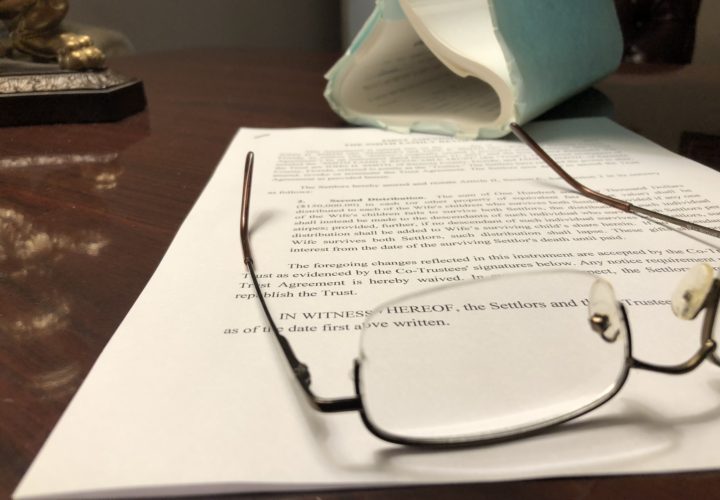Couples getting married need to be aware of how marriage immediately changes property rights for both individuals.
Intestacy
When someone dies without a will, their estate is intestate. Without a will, the courts must rely on the laws of intestacy to determine how the individual’s assets are divided. Application of these laws changes immediately upon marriage.
Upon marriage, the spouse becomes the primary heir to the exclusion of all other family members except your children. Specifically, the laws of intestacy act as follows:
- If there are no children, the surviving spouse inherits the entire estate.
- If there are children, all from the current marriage, the surviving spouse inherits the entire estate.
- If either spouse has children not common to both spouses, the estate will be equally divided between the surviving spouse and the children of the deceased spouse.
Elective Share
Under Florida Law, a surviving spouse has the right to claim up to thirty percent of their spouse’s estate. The purpose of this law is to prevent one spouse from disinheriting the other. And while this law serves the noble purpose of ensuring the surviving spouse will not be left without means, it is not appropriate in all cases.
In second marriages, for instance, both spouses may wish to leave their entire estates to their respective children. The Elective Share could prevent this result unless the right to the Elective Share is properly waived through a pre or postnuptial agreement. Surviving spouses have other rights as well.
Homestead
When a Florida resident owns their primary residence, it is their homestead. If they get married, their spouse has an immediate interest in that homestead. A non-owning spouse is entitled to a life estate in the homestead. This means if the owning spouse were to die, the non-owning spouse has the right to that house during their lifetime. Upon the non-owning spouse’s death, the homestead would go to the owning spouse’s heirs at law.
This scenario can create some very uncomfortable situations. For instance, the expenses of the home are divided between the surviving spouse and decedent’s children. These expenses can include maintenance, improvements, insurance, mortgage and more.
For spouses dying after October 1st, 2010, the surviving spouse has the right to elect to take an undivided one-half interest in the home instead of a life estate. This would be advantageous to the surviving spouse where planning to sell the home, or if the one-half interest were of greater value than the life estate interest. This election must be made within 6 months of the date of death.
Pre/Post Nuptial Agreement
The only way in Florida to waive the statutory rights of a spouse is through a pre or postnuptial agreement.
A prenuptial, sometimes called ante nuptial, agreement is entered into prior to marriage. It is the easier of the two. Full financial disclosure and legal representation of both parties is not absolutely required, but is recommended.
Postnuptial agreements do require full financial disclosure and that both spouses are represented by legal counsel and that both attorneys sign the agreement along with the spouses.



